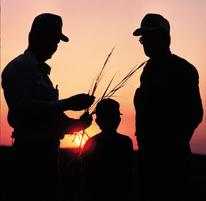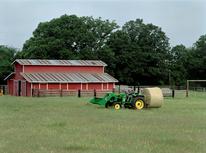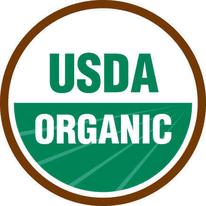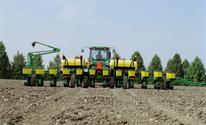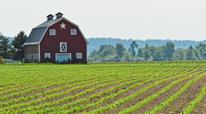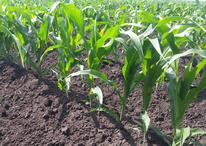By Harriet Behar and Jody Padgham
Edited by Steve Simmons, Kristine Moncada, Craig Sheaffer, Gigi DiGiacomo and Nicole Tautges
At the age of 25, Brian Otten* considered himself a lucky guy. Growing up in Minneapolis, his parents had supported him in his choice of college and a degree in political science at the University of Wisconsin-Madison. He’d enjoyed learning, and knew he had a good base of knowledge. Like many people his age, though, he wasn’t entirely sure what he really wanted to do for the rest of his life. Maybe be a teacher, or a planner or a lawyer or a consultant, like some of his PoliSci colleagues?
As Brian considered his options, it soon seemed the most logical choice was continuing on in school to get a law degree. He decided to take the LSAT and applied to several law schools. “I’m so proud of you,” his mom said with teary eyes when the acceptance letter from Marquette Law School came. Her father had received his MBA there long ago. Brian made plans to move to Milwaukee. But, as the summer ticked on, something didn’t feel quite right. Brian’s thoughts began to swirl. Did he really want to be a lawyer?
With his love of learning he didn’t feel intimidated by the schooling. But he had been doing some background reading; lawyers looked at the world in a pretty harsh, clear cut way. Also, there seemed to be a glut of people with law degrees in the marketplace. Was this what he wanted to do for the rest of his life?
Tradeoffs and Opportunities
While Brian was away at college, his family decided to buy 185 acres of good Minnesota crop land as an investment, planning to rent it to a farmer for the short term income. They also expected to gain a long term increase in the land’s value over time.
While discussing life with a good friend, Michelle, Brian talked about his family’s new land purchase. Michelle knew the struggle Brian was having with his law school decision. “Why don’t you go try being a farmer?” Michelle asked. The comment brought back memories of a day when Brian was 18, standing in front of a mirror, thinking, “I wonder if I could be a farmer?” The idea was only fleeting at the time. Farming is not on the list of things people growing up in Minneapolis generally consider as a feasible occupation. But, as Michelle’s words refreshed the memory, Brian began to dream. “Could I learn to farm? Should I take the path I’ve laid out or trust my gut feeling?” he wondered.
Brian yearned to fulfill a passion in his life; farming was very exciting and attractive to him. He loved being outside, learning new things, working hard and putting together the pieces to solve problems. He thought he’d love the management decisions farming would bring, and the independent kind of life he could lead. What he knew about farming made it seem a good fit for the kind of person he knew himself to be, and the things he liked to do and think about. The idea began to grow but Brian knew he’d be taking a big chance in trying to make a living as a farmer. He didn’t have any family who were in farming to ask for help or any equipment to borrow, and no idea of how to go about setting up a farming operation. He didn’t have much in the way of money or other resources to start with. How could this possibly work?
His parents were committed to having their new land managed organically. Brian shared his parent’s vision, believing organic production is better for the earth, and better for his and others’ health. Organic was the only kind of agricultural production that made sense to him. He was attracted to learning and implementing ecologically sound production practices that, as a foundation principle, continually improve the soil and environment.
Brian did some research. He knew that the average starting pay of lawyers in the private sector was $84,000 per year, and that the median salary for all lawyers was about $115,000. Although he’d build up big debts, he’d also make big money when he found a decent position. If he went on to be a lawyer, his life would be stable, he could remain in Minneapolis, and he’d have a stable income. By comparison, an established organic grain farmer in Minnesota might net $60,000 per year, but it could be as low as $20,000 or as high as $100,000 depending on the year. Of course, these aren’t numbers from those just starting out. Brian did not know how long it would take to get to this level, or how much he would need to invest as a beginning farmer.
What it Takes to Farm Organically
The list of equipment and other inputs needed to begin farming was long. The Otten’s new 185-acre farm was set up for row crops. Brian would need to rent or buy several pieces of equipment, or consider custom hiring some of the fieldwork. Organic production rules mandate crop rotation, meaning he’d eventually need all the equipment to plant and harvest corn, soybeans, hay, and possibly a small grain crop. Examples of what he might need for grain crops include tractor, a chisel plow, row crop planter, small grain drill, a combine, rotary hoe and a field cultivator. Additionally, a hay crop such as alfalfa would require a mower, conditioner, and baler. If he didn’t buy, who could he rent from, how much would that cost, and how functional or sustainable would that be? Alternatively, what custom hire services were available and at what cost?
In addition to solving production problems, Brian would need to consider housing if he decided to farm. Brian was living in Minneapolis. The farm was 40 miles away and didn’t include a house. Could someone successfully farm while living 40 miles away? If not, where would he live, and how could he, as a single young man, develop a social life and friends? If he took on farming, what would his life look like in 5 years, 10 years, or 30 years?
Brian had several things working in his favor. His family understood his vacillation with law school, and they were willing to let him start farming some of the 185 acres. They’d even forego the land rental income for a short time to help him get his operation started.
Donny Brown, the 70-year-old farmer the Ottens bought the land from, was willing to continue managing the land in the short term. Brian had met Donny and the two really got along; they shared a lot of the same philosophies about life. Donny was willing to show Brian the basics of crop production, including introductions to various kinds of equipment, but he had no experience with organic production. Brian would need to find other sources of information for that.
To fully understand organic crop production, Brian studied the organic regulations from the USDA National Organic Program. Crop rotation is mandated in organic production, and important for weed and pest control and in managing soil fertility. However, it makes farming more complex as each crop has specific equipment, management, fertility, storage and marketing needs.
Brian also found out that there were some good in-person learning opportunities nearby – there was a big annual farming conference put on by the Midwest Organic and Sustainable Education Service where he could learn organic production practices and meet other new organic farmers. And, once he got going, MOSES offered a farmer-to-farmer mentoring program that would connect him with an experienced organic farmer that he could ask about the specifics of organic production, to augment the non-organic practices Donny would be teaching him.
Brian learned that even while he was using organic methods, his land could not be certified as organic until 36 months after conventional use. This meant that even though those first few years of crops were grown using organic methods, they could not be sold as organic and would not receive any organic premiums. For example, conventional corn in November 2014 sold for $3.58 a bushel, while organic corn was $11.01 a bushel. As a result, his first crops likely would not be as profitable. He discovered that information on the economics of starting an organic farm was hard to find. But, the basics were clear: It would be really hard economically to get into farming, particularly if he planned to manage organically. “With all the equipment costs, especially, the first two or three years I’ll have to plan on losing money. The question is how to best manage the losses so I can survive into the profit-making years,” Brian understood.
Brian knew that he had a lot going for him, but also a lot against him, if he chose to take the leap and manage an organic farm. He spent a lot of time making lists of pros and cons, thinking about what he wanted his life to look like, and what kind of impact he wanted to leave on the world. There were a lot of considerations that needed to be explored before he could make this important decision. Should Brian take the leap, turn away from his option of law school, and take on the learning curve and financial risk of becoming an organic farmer?
* While these cases describe actual situations, names have been changed to protect the identity of participants.
Access the complete decision case study with all educational materials (pdf) >>>
You may cite this publication as:
Behar, H. and J. Padgham. 2017. Should I Become an Organic Farmer? A Decision Case Study in Principles for Transitioning to Organic Farming: e-Learning Materials and Decision Case Studies for Educators. S. Simmons, M. Miller, K. Moncada, C. Sheaffer, G. DiGiacomo, and N. Tautges (Eds). University of Minnesota, St. Paul, MN.
